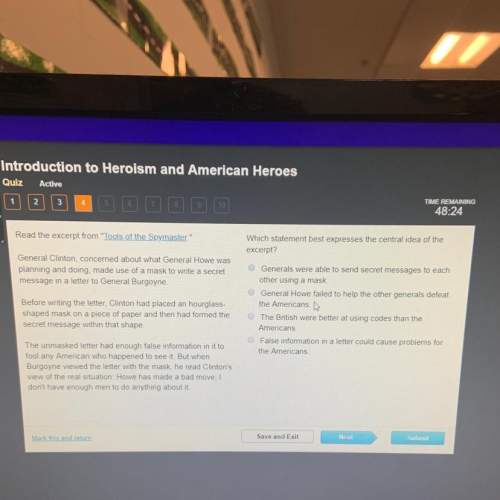Помогите вопрос к тексту
pls
pls
pls
pls
pls
pls
pls
plz<...

English, 15.10.2020 06:01 hhomeschool24
Помогите вопрос к тексту
pls
pls
pls
pls
pls
pls
pls
plz
plz
plz
plz
Education in the USA (4)
Education in the United States of America is compulsory for children from the age of 6 till 16 (or 18). It involves 12 years of schooling. A school year starts at the end of August or at the beginning of September and ends in late June or early July. The whole school year is divided into three terms/trimesters or four quarters. American students have winter, spring and summer holidays which last 2 or 3 weeks and 6 or 8 weeks, respectively. The length of the school year varies among the states as well as the day length. Students go to school 5 days a week.
The American education system consists of 3 basic components: elementary, secondary and higher education. There is also such a notion as preschool education. At the age of 4 or 5 children just get acquainted with the formal education in a nursery school. The preschool education programme aims to prepare children for elementary school through playing and help them to acquire the experience of association. It lasts for one year. Then they go to the first grade (or grade 1).
Elementary education starts when pupils are 6 years old. The programme of studies in the elementary school includes the following subjects: English, Arithmetic, Geography, History of the USA, Natural sciences, Physical Training, Singing, Drawing, wood or metal work. The education is mostly concentrated on the basic skills (speaking, reading, writing and arithmetic). Sometimes children also learn some foreign languages, general history and such new subjects as drug and sex education. The main goal of elementary education is the general intellectual, social and physical development of a pupil from 5 to 12 or 15 years old.
Secondary education begins when children move on to high or secondary school in the ninth grade, where they continue their studies until the twelfth grade. The secondary school curriculum is built around specific subjects rather than general skills. Although there is always a number of basic subjects in the curriculum: English, Mathematics, Science, Social Studies and Physical Education, the students have an opportunity to learn some elective subjects, which are not necessary for everybody. After the first two years of education they can select subjects according to their professional interests. The electives are to be connected with the students' future work or further education at university or college. Every high school has a special teacher — a guidance counselor who helps the students to choose these elective subjects. Moreover, he helps them with some social problems, too. The elective courses are different in various schools.
Members of each grade in high school have special names: students in the ninth grade are called freshmen, tenth graders are called sophomores, eleventh graders are juniors and as for twelfth graders, they are seniors.
After graduating from high schools the majority of the Americans go on studying at higher education establishments. In universities they have to study for four years to get a bachelor's degree. In order to get a master's degree they must study two years more and, besides, be engaged in a research work.
Questions:
1. At what age do American students start and finish their compulsory education?
2. How are the school years called in the United States?
3. The length of the school year varies among the states, doesn't it?
4. What are the basic components of American education?
5. Do all children have to attend a nursery school?
6. When does elementary education start?
7. What is the main aim of elementary education?
8. The secondary school curriculum doesn't imply a number of basic subjects, does it?
9. What are elective subjects?
10. Who is a guidance counselor?

Answers: 2
Another question on English

English, 21.06.2019 18:30
What does the author see as the main cause for why students don’t really see shakespeare as a real, flawed human being? we shouldn’t shy away from discussing our literary heroes’ flaws. if nothing else, the knowledge of their failures us appreciate what success and greatness these authors did achieve. often our hero-worship keeps us from truly seeing the complexity of a great author. thus, i would argue, nothing would be better for high school students than to take shakespeare down a peg or two. a) the fact that students never learn enough about shakespeares biography b) the fact that students only read shakespeare’s comedies while in school c) the fact that students are never assigned to read any shakespeare while in high school d) the fact that students only read shakespeare’s greatest works in school and thus never see his weaknesses
Answers: 1

English, 21.06.2019 18:50
It's to know your purpose before you read something because a purpose can:
Answers: 1


English, 22.06.2019 03:00
Need answer asap plz! in “ode to the west wind,” which image best expresses the speaker’s hopes for the west wind? a. “scatter, as from an extinguished hearth / ashes and sparks . .” b. “make me thy lyre, even as the forest is . .” c. “. . he lay, / lulled by the coil of his crystalline streams . .” d. “if i were a dead leaf thou mightest bear . .”
Answers: 2
You know the right answer?
Questions

Mathematics, 24.04.2020 16:56

Biology, 24.04.2020 16:56


Mathematics, 24.04.2020 16:56






Mathematics, 24.04.2020 16:57



Computers and Technology, 24.04.2020 16:57


Spanish, 24.04.2020 16:57

Mathematics, 24.04.2020 16:57







